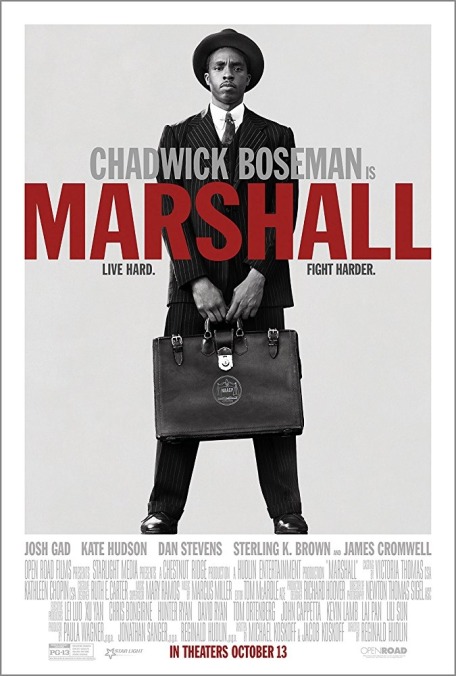Marshall turns a real-life hero into the lead of a pretty good courtroom drama

Chadwick Boseman will soon appear in a second movie as the Marvel superhero Black Panther, but he’s already three movies deep into a different franchise: the Chadwick Boseman Plays Important Figures Of The 20th Century Expanded Universe. After tackling Jackie Robinson in 42 and James Brown in Get On Up, he has moved on to Thurgood Marshall, the Brown v. Board Of Education lawyer and eventual Supreme Court justice. The combination of his portrayal in Marshall with the man’s real-life CV creates a fact-based superhero counterpart to Boseman’s made-up Avenger.
Yet Marshall doesn’t quite venerate its subject to excess. True that this Thurgood Marshall does not undergo a major evolution through the course of the movie, and truer still that having Boseman in this role gives the movie-version Marshall a powerful charisma that holds the screen easily. But Marshall the movie also hands Marshall the man a considerable handicap by focusing on a specific case from relatively early in his career where he was not actually allowed to speak in court. When his employers at the NAACP send Marshall to Bridgeport, Connecticut, to defend Joseph Spell (Sterling K. Brown) of the charge that he raped white socialite Eleanor Strubing (Kate Hudson), a stern judge (James Cromwell) rules that he may not use his New York license to practice law. He’s forced instead to serve as a silent advisor to Sam Friedman (Josh Gad), the timid insurance lawyer who reluctantly agrees to appear in court long enough to turn the case over to Marshall. Friedman is even more reluctant to stick with the case once he realizes he can’t pass it off to his more confident partner.
 Keep scrolling for more great stories.
Keep scrolling for more great stories.
